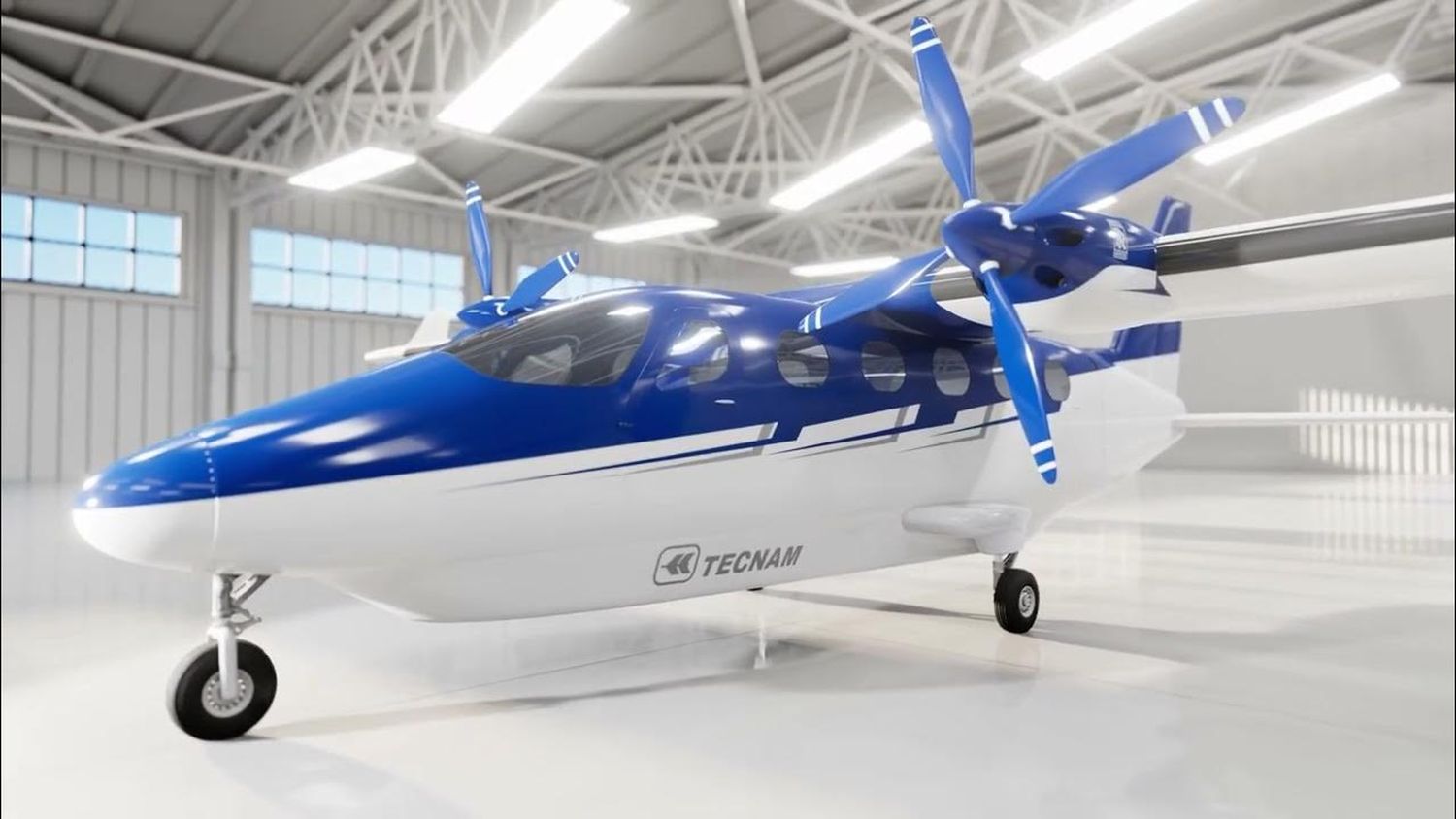Italian aeronautical manufacturer Tecnam said it will postpone the development programme and launch of its P-Volt all-electric aircraft. The model had originally been unveiled at the 2021 Dubai Air Show as a transition kit for the P2012 Traveller.
In a press release, the company explained that «after three years of intensive studies covering the entire lifecycle of an all-electric aircraft» it concluded that «the time is not yet ripe» for the aircraft. However, Tecnam said it will continue to study possible emerging technologies.
The P-Volt would be capable to operate commercial flights with up to nine passengers, powered solely by electric power provided by interchangeable batteries. It could also perform cargo, sanitary and other special missions.
See also: Dubai 2021: Tecnam unveils the P-Volt, an electric aircraft based on the P2012 Traveller
Tecnam postpones P-Volt launch after analysing available energy storage solutions
The manufacturer said that from the beginning of the programme it was focused on providing an alternative for passenger air transport that is entirely powered by electric energy and more efficient in terms of operating costs. However, it said that at present this «can only be achieved by extremely aggressive speculation on uncertain technology developments».
According to the company, its teams concluded that, considering the currently available alternatives for energy storage and the forecast for the next five years, an end-of-life battery pack would not be the best product for the market, but the worst in terms of net value: the original design included interchangeable batteries, which could be replaced when new solutions emerged to improve the aircraft’s performance.
However, it is precisely this point that the company cited as a key factor in deciding to postpone the launch. According to Tecnam, the proliferation of aircraft with «new» batteries would lead to unrealistic prospects that would degrade rapidly after a few weeks of operation.
See also: Boeing and NASA unveil the next-generation experimental aircraft X-66A
Tecnam’s assessment
Taking into account the most optimistic projections of slow charge cycles and the possible limitation of the maximum charge level per cycle, the actual storage capacity would fall below 170 kilowatt-hours per kilogram, and only a few hundred flights would lead operators to replace the entire storage unit, according to Tecnam. The situation would generate a drastic increase in direct operating costs due to battery replacement price reserves.
«It has always been our culture to commit to achievable goals with customers and operators, and we intend to keep that promise», said Fabio Russo, Tecnam’s Chief Research and Developmentof Officer. «We hope that new technologies will make businesses viable sooner rather than later, and we have real confidence in our partners’ ability to bring highly valuable products to the zero-emission powertrain and energy storage arena», he added.
Finally, the company remarked that it is «closely monitoring the evolution of technologies capable of achieving net-zero emissions targets». It also said it continues to work with propulsion systems manufacturers with the aim of resuming development of the P-Volt and advancing its certification «as soon as technology evolution allows».


Comentarios
Para comentar, debés estar registrado
Por favor, iniciá sesión